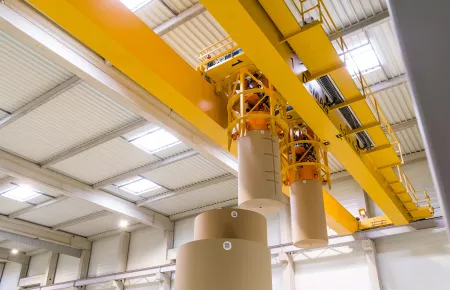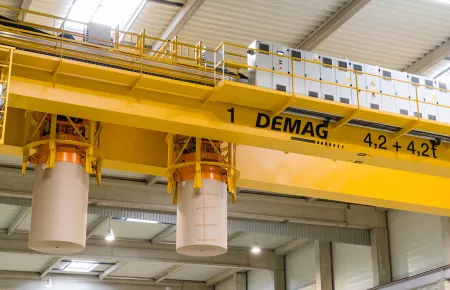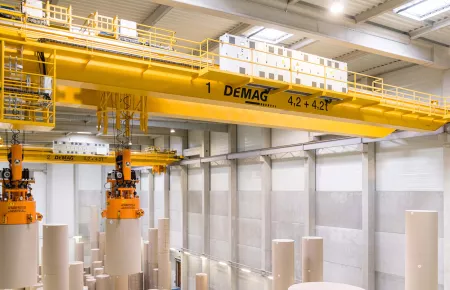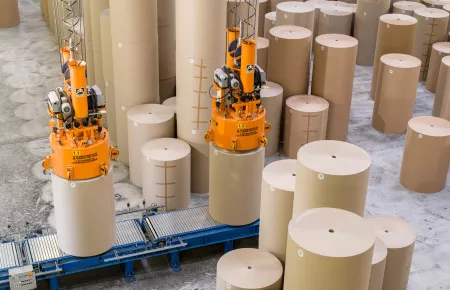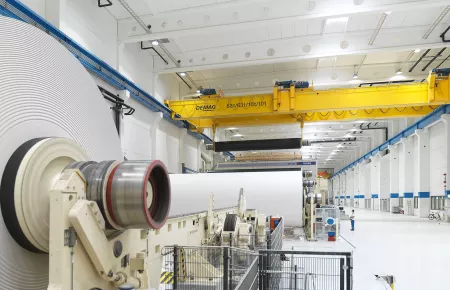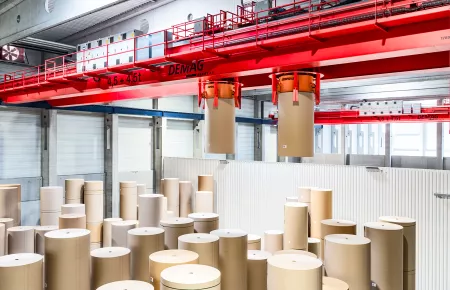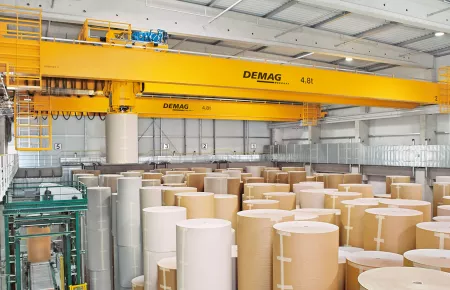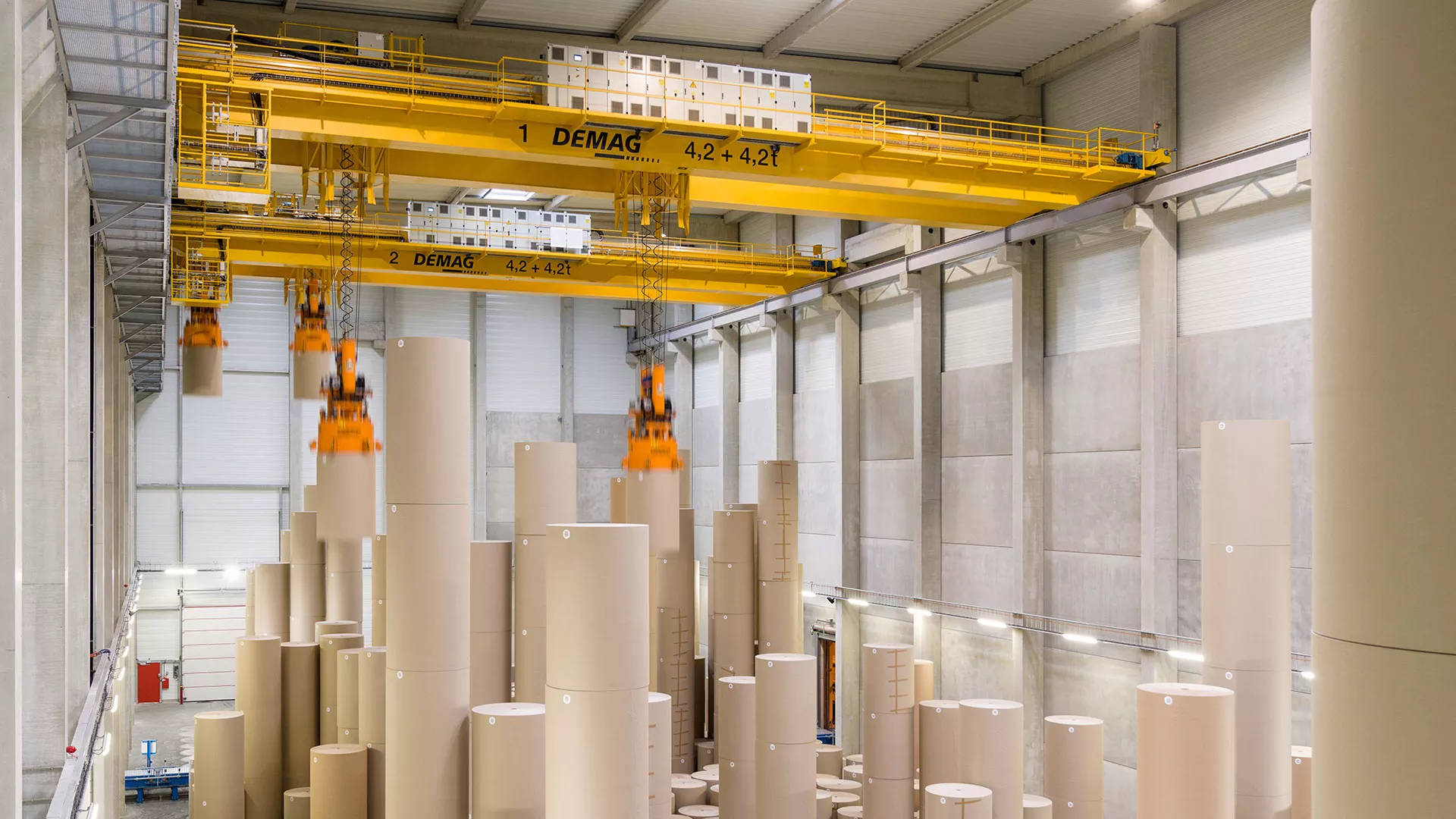
Demag automatic cranes
in a paper-roll shipping store at Blue Paper
Two automatic cranes with independently travelling crabs for paper-roll shipping store
Customer
Blue Paper SAS in Strasbourg is a joint venture founded by the Klingele Group (Germany) and the VPK Packaging Group (Belgium). The factory has been producing light base paper and testliner (weighing between 70 and 135 g/m2) for corrugated paper packaging made of fully recycled paper since 2013. It has an annual capacity of more than 420,000 tons.
Requirement
The new paper-roll shipping store was to be equipped with automatic cranes. It has a theoretical capacity of 15,250 tons and replaces the old, manually served store that could only accommodate the production of seven days weighing some 7,500 tons.
The paper machine operates 24/7, which means that the store is continuously replenished. However, the shipping times are limited to 75 hours per week. This means that the shipping store must be able to “breath” accordingly and perform retrieval operations at very high speed – above all at the beginning of the week when it is filled to above-average capacity.
Solution
Two Demag process cranes that have a span of 27.20 metres now provide fully automated material handling in the new shipping store. They are each equipped with two open-winch crabs and vacuum lifters as load handling attachments. Each of the two cranes can store or retrieve single or pairs of rolls measuring up to 1,450 mm in diameter, 3,350 mm in width and weighing up to 4.2 t.
The high lifting and travel speeds offered by the Demag process cranes result in very high maximum system performance of up to 128 roll movements per hour. Since the crabs travel independently of each other, a high level of flexibility can be achieved – with fewer crane long-travel movements.
The storage and retrieval operations are controlled by the Demag warehouse management system (WMS), which communicates direct with the materials management system at the paper factory and, therefore, also with the production planning system. This enables the cranes to perform optimisation duties and prepare already scheduled retrieval tasks in the periods in which shipping cannot take place.
Special features
This project marked the first time that Demag automatic cranes operate with independently travelling crabs in the world. In addition, the cranes operate with high energy efficiency. Recovery units harvest the electric energy generated when the crane decelerates and when the hook is lowered and return it to the power supply.

